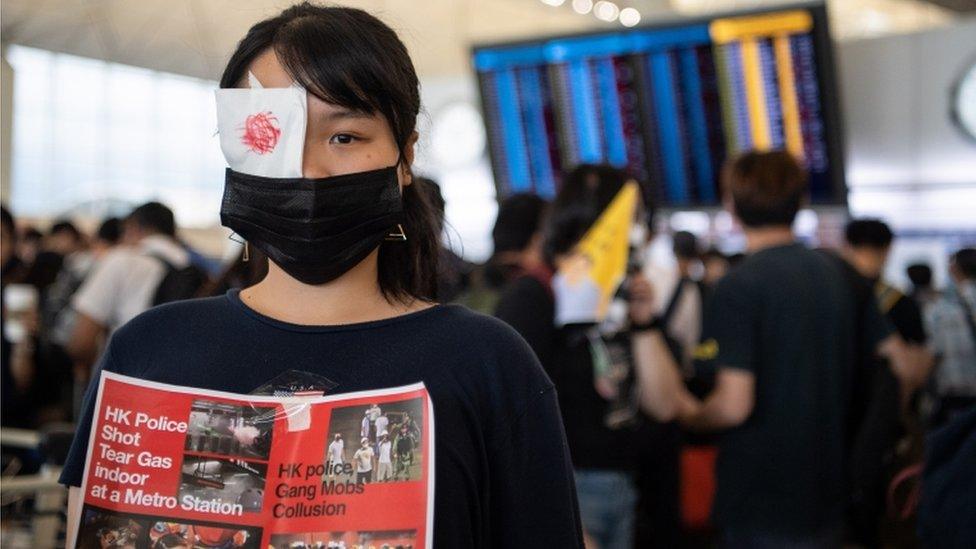Hong Kong protests: Students boycott class on first day back
- Published
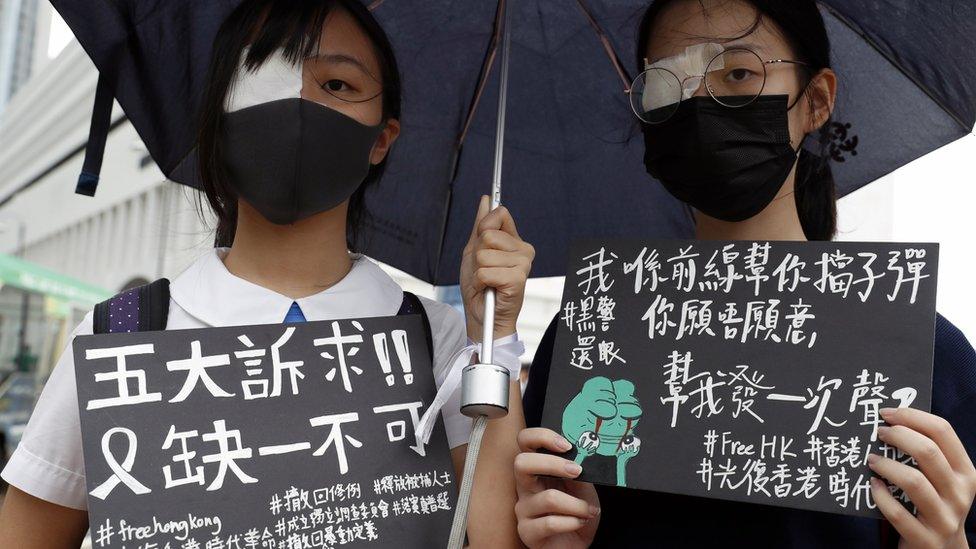
Students joined several rallies planned for Monday
Thousands of secondary school and university students have boycotted classes in Hong Kong, in the latest pro-democracy protests.
Organisers say 10,000 pupils from 200 secondary schools did not turn up for the first day for the new school year.
The student action comes on the same day as a call for a broad two-day strike and large rally.
Protests over the weekend saw some of the worst violence in weeks between protesters and police.
On Saturday, protesters threw petrol bombs, lit fires and attacked the city's parliament building while police used tear gas, rubber bullets, water cannons and fired live warning shots.
Hong Kong is now entering its 14th successive week of demonstrations.
The protests were sparked by changes to a law that would allow extradition to mainland China, but have since widened to include calls for an independent inquiry into police brutality and universal suffrage.
Who is protesting on Monday?
Early on Monday, activists disrupted train services at different stations causing major rush hour traffic delays. Services resumed later in the morning.
Nurses were also seen lining the corridors of hospitals, holding pro-democracy placards, according to AFP. There was little other sign of the two-day strike.
However, students came out in huge numbers. Thousands gathered outside the Chinese University of Hong Kong (CUHK).
"I come here just to tell others that even after summer holidays end, we are not back to our normal life. We should continue to fight for Hong Kong," one 19-year-old student told news agency AFP.
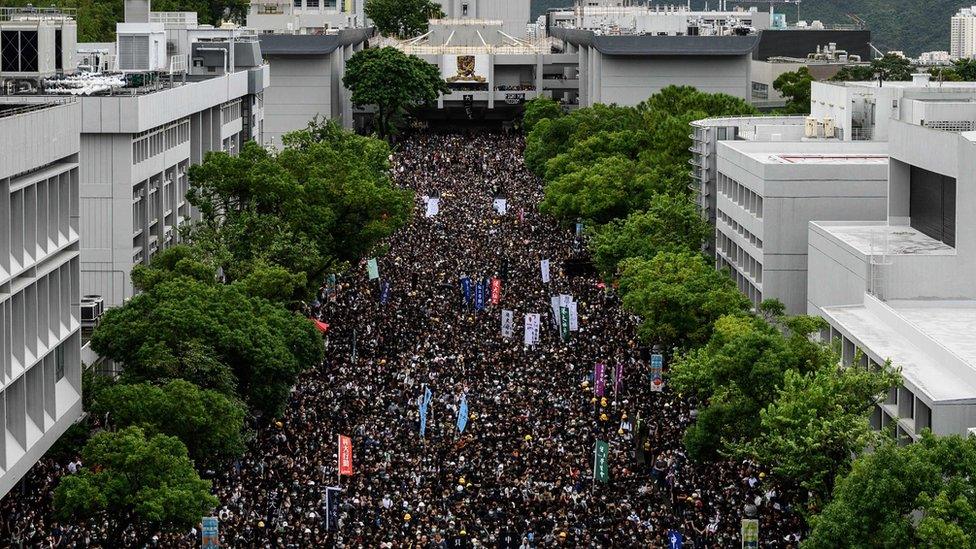
Thousands of university students joined the protests
The university had attempted to put a halt to the rally, asking for it to be cancelled, the student union revealed on Facebook, but the union said they intended to maintain its "original plan".
Secondary school students had also gathered at Edinburgh Place, in the city's central district.
"I am willing to take any disciplinary consequences," one student from a college in the district of Sham Shui Po told Hong Kong newspaper South China Morning Post.
"Hong Kong is our home... we are the future of the city and have to take up responsibility to save it," another student, named as Wong, 17, told AFP.
Many of the students were wearing eye-patches to show their solidarity with one activist who during the earlier weeks of protests was injured in the eye in clashes with the police.
Images on social media also showed students forming human chains outside several secondary schools in the city.
Allow X content?
This article contains content provided by X. We ask for your permission before anything is loaded, as they may be using cookies and other technologies. You may want to read X’s cookie policy, external and privacy policy, external before accepting. To view this content choose ‘accept and continue’.
A Hong Kong court on Monday overturned the government's decision to disqualify Agnes Chow from a parliamentary by-election last year. She had tried to stand as candidate for the local Demosisto, party, which is organising the current boycott with several student groups.
Ms Chow was arrested last week alongside fellow Demosisto activist Joshua Wong, but they have since been released on bail.
What happened last weekend?
Monday's strike comes as the city is still reeling from a weekend of protests that turned into violent clashes between police and activists.
A total of 159 people, aged between 13 and 58, were arrested over the weekend, Mak Chin-ho said.
On Sunday, pro-democracy protesters blocked roads to the city's airport, disrupting the operation of the major Asian transport hub.
Trains to the airport were halted and roads blocked so that passengers had to walk to the terminal. Most flights operated as normal, but delays were reported.
On Saturday, police and protesters clashed during a banned rally.
Blue-dyed water fired at protesters by Hong Kong police
Hong Kong riot police used tear gas, rubber bullets and water cannon to disperse crowds as tens of thousands marched in the city, defying a ban.
Officers also fired live warning shots as they tried to clear the streets.
Protesters lit fires, threw petrol bombs and attacked the parliament building. A number of people were later held as they fled into metro stations.

A guide to the Hong Kong protests
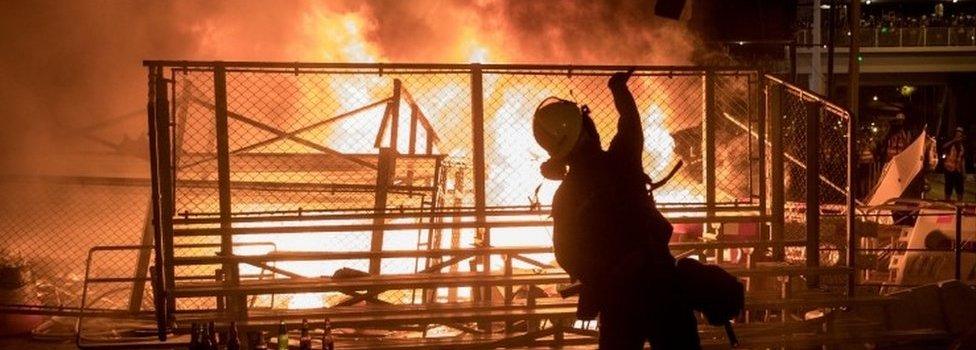
Summary of the protests in 100 and 500 words
All the context you need on the protests
Timeline of events so far
The background to the protests in video
More on Hong Kong's history
Profile of Hong Kong leader Carrie Lam
- Published1 September 2019
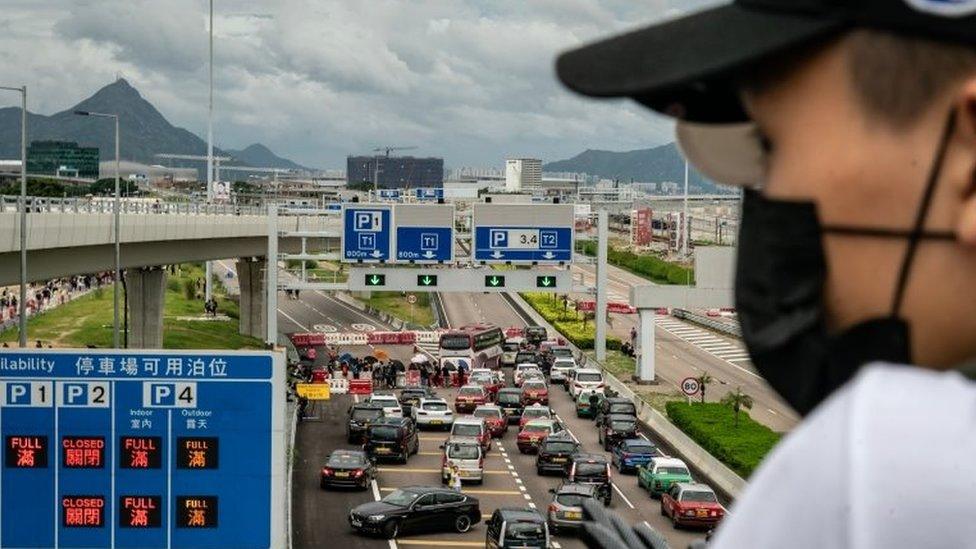
- Published1 September 2019
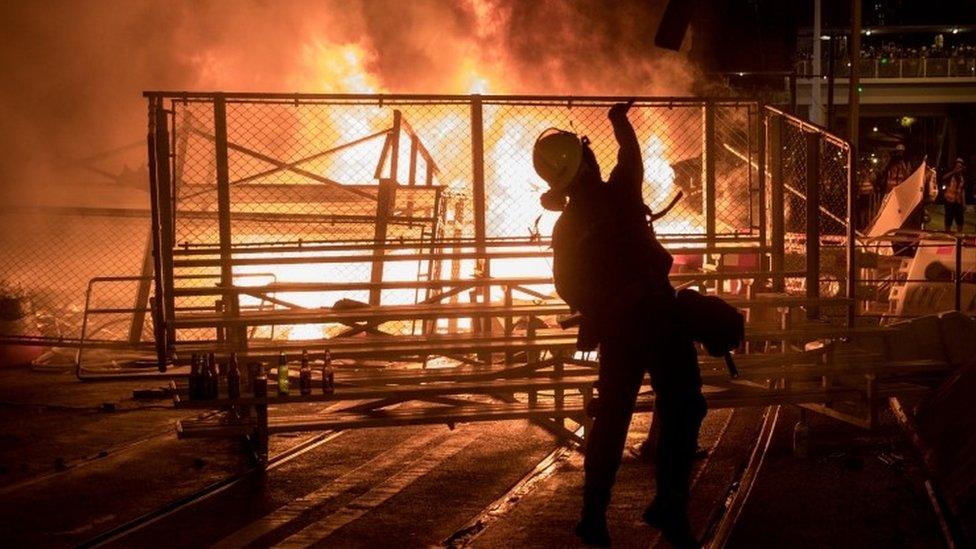
- Published14 August 2019
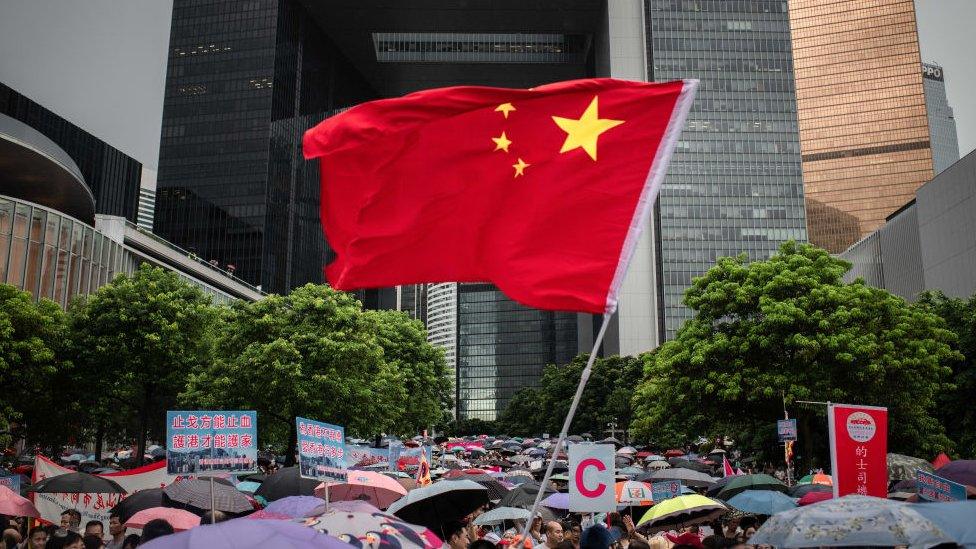
- Published16 August 2019
